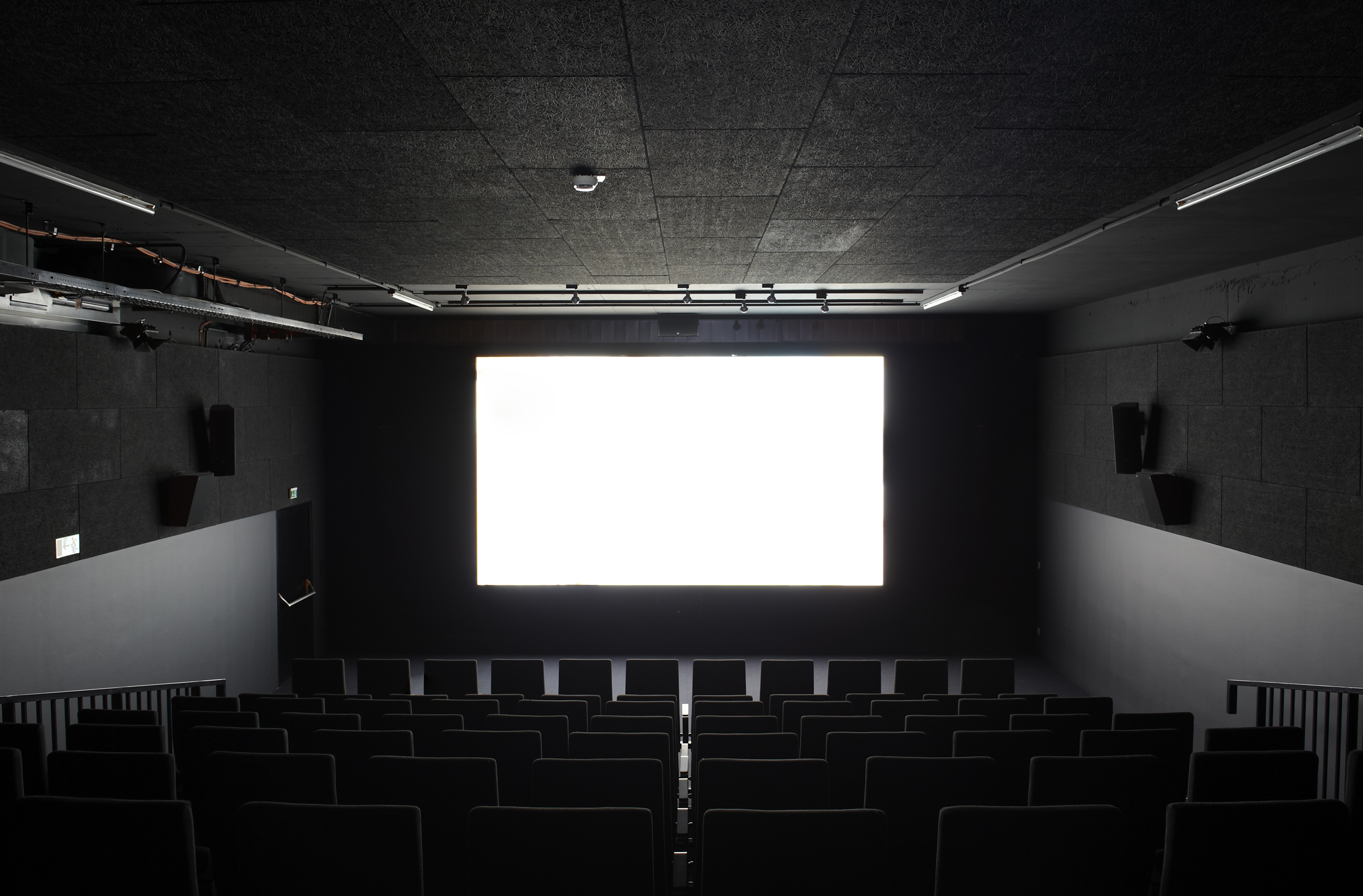
30.11.2022
Raise and Un-Raise Your Voices! Choirs in Moving Images | Part 2
Raise and Un-Raise Your Voices! Choirs in Moving Images | Part 2
Raise and Un-Raise Your Voices! Choirs in Moving Images
Program series curated by Marietta Kesting and Constanze Ruhm
The ability to produce musical and rhythmic sounds is shared by people, machines, and animals, in particular birds. This lecture, film, and live performance program presents historical and contemporary (protest) choirs, “singing plays,” and experiments in image and sound over three evenings in the mumok cinema. Alongside questions on performative aesthetics and historical reference to orality, as well as the tension between liveness and technical recordings and the acts of utterance and listening, we also here see significant experimental arrangements of a social artistic practice that primarily operates by someone “raising their voice.” Doing this collectively or alone is always also a political act. Influenced by different sound strategies deployed by musicians, artists, academics, and also machines, here appeals and proclamations, invocations, incantations, and interrogations become audible, visible, and tangible.
Locally and internationally, there are very diverse experiments with choirs and (live) performances at the interface of art, music, and moving image, using manifold forms of overlap, such as in works from the Afro-American context by Jace Clayton (Omnipresence), installations by younger Austrian artists like Marlies Pöschl, and performances by the queer-feminist choir Mala Sirena that was founded by Constanze Ruhm and Florian Paul Ebner. While in political actions you may cast your vote or abstain, in a choir you keep your own voice which is added to other voices and thus temporarily becomes part of a multivocal collectivity. In choral format and their many different new interpretations, new collectivities and cooperatives are thus tested. Feminist and queer artistic practice, which was often accompanied by demands for recognized and inclusive visibility, is now partly expanded by formats of audibility, of loud protest, and also a new politics of pleasure, singing “against power and injustice.”
Part 2 on November 30, 7 pm
WORKING / AGENCY
This evening’s theme is voices that are raised in the context of the media. The accompanying issue of agency is explored in terms of forms of visible, invisible, or disappeared, more or less audible work, and also work that is to be done, has not been done, or cannot be done. We begin with Wendelien van Oldenborgh’s work No False Echoes, a title that might be a warning, a simple statement of fact, or even a question. This film tells of the colonial politics of The Netherlands, and looks at the first radio connections between The Netherlands and the colony of the Dutch East Indies (in Dutch Nederlands-Indië, and in Indonesian Hindia-Belanda), where the Philips radio company PHOHI and the broadcaster Radio Kootwijk were key protagonists. This was a colonial echo chamber that was intended to silence any form of critical of deviant voice. Pana Ha'geshem (The Rain is Gone) by Noam Enbar looks at asylum seekers from Eritrea and Sudan held fast in the Holot Detention Center in Israel, people in abeyance without any perspective who are neither able to return to their home countries nor have any prospect of being able to enter Israel. A choir of voices without rights asserts its right, albeit only metaphorical, to raise its voice, with an improvisation on a composition by Noam Enbar that is based on a popular Israeli song about rural farming traditions. But for those held in Holot there is no rain to wait for, no land to till, but instead just this place of an alleged transition with no future, where their lives are permanently inscribed with the power of the state. Sounds From Beneath by Mikhail Karikis imagines the (historical) soundscape of an abandoned coal mine. The artist stages a miners’ choir remembering and vocalizing the industrial sounds of work in a mine. The former miners raise their voices to evoke the past heavy physical labor as a memory in sound, the tracks of their past that also remain written in their faces and gestures. The program finishes with the short film A Film About the Desire to Make it Work by Franzis Kabisch and Laura Nitsch, in which several voices are heard simultaneously, while others fail to be heard. A radio moderator loses her voice, or perhaps she is simply not heard by the others. In return, “a mourning choir speaks to her—not with words, but with notes, sounds, and body language” (from the text by the artists).
Program
Wendelien van Oldenborgh, No False Echoes, 2008, 31 min
Noam Enbar, Pana Ha’Geshem (The Rain is Gone), 2016, 17 min
Mikhail Karikis, Sounds From Beneath, 2011-2012, 7 min
Franzis Kabisch & Laura Nitsch, A Film About the Desire to Make it Work, 2018, 28 min
Presented by Marietta Kesting and Constanze Ruhm
Part 1 on Wednesday, November 16: INVOCATION with Jace Clayton
Part 3 on Wednesday, December 7: RESONANCE / ALGORITHMS
Constanze Ruhm is an artist, filmmaker, author, and curator. Since 2006 she has been professor for art and media at the Academy of Fine Arts Vienna.
Marietta Kesting is a media and art theorist, presently teaching at the University of Potsdam, and she is part of the publication platform b_books.
© mumok – museum moderner kunst stiftung ludwig wien